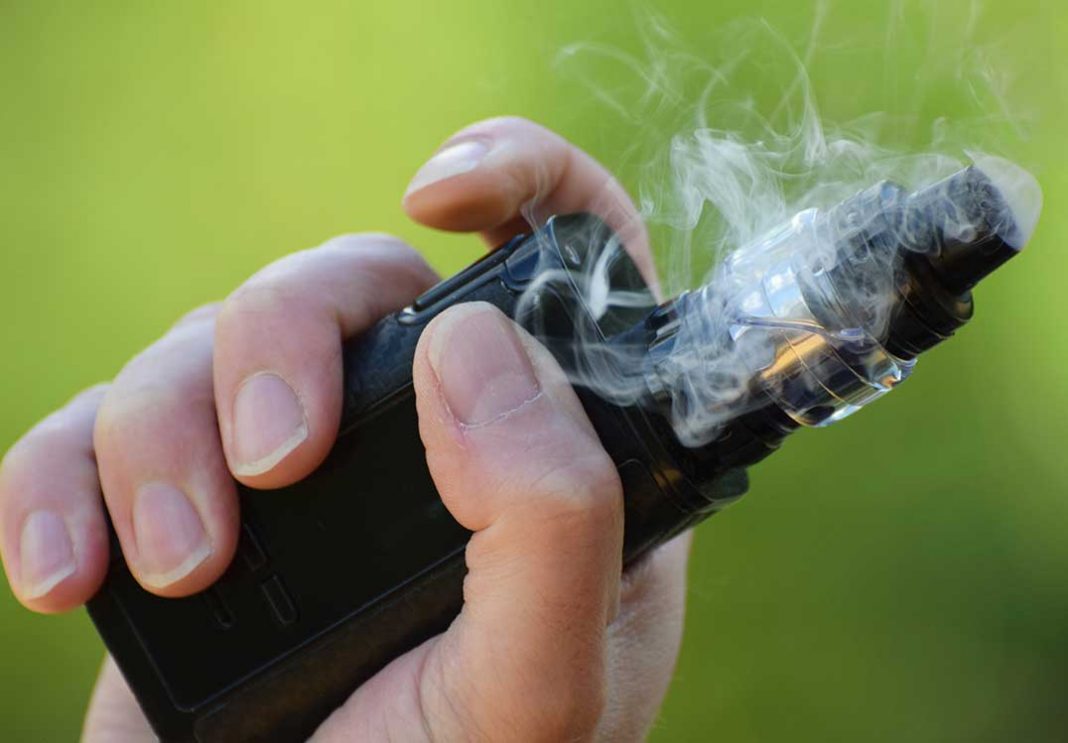SUDBURY – An official with Public Health Sudbury and Districts (PHSD) is in full support of the position taken by the Council of Chief Medical Officers of Health (CCMOH) on vaping in Canada.
“I strongly support and echo the recent statement from the Council of Chief Medical Officers of Health regarding vaping,” states Dr. Penny Sutcliffe, medical officer of health and chief executive officer of PHSD.
This comes after the CCMOH statement on October 11 that “we are increasingly concerned by the substantial rise of vaping among Canadian youth. As nicotine in any form is highly addictive, non-smokers who vape products containing nicotine are at risk of going on to use tobacco products such as cigarettes.”
“As we stated in April 2019, Canada has seen the rates of youth smoking decline significantly in recent years, but youth are now turning to vaping in large numbers. We are very concerned that a new generation of youth addicted to nicotine will lead to a resurgence in smoking—reversing decades of progress and creating new public health problems,” reads the statement. “Youth are particularly susceptible to nicotine’s negative effects, which can include altering their brain development and affecting their memory and concentration.”
“While the harms of vaping products are starting to emerge, researchers are still gathering data on their potential effectiveness as a means of helping smokers quit smoking,” says CCMOH. “What we do know is that, regardless of a person’s age, vaping can lead to nicotine addiction and can increase exposure to harmful chemicals for people who are non-smokers.”
CCMOH notes that individuals who use vaping products breathe in a mixture of chemicals, which include harmful and potentially harmful substances such as nicotine, solvents, cancer-causing chemicals (e.g. formaldehyde), heavy metals and flavourings. It is also not clear what underlying risk there may be from inhalation of ultra-fine particles created by the mechanism of vaping technology that permits inhalation deep into the lung.
“Some chemicals (e.g. flavourings) in vaping products may be safe to eat but have not necessarily been tested for safety when inhaled,” CCMOH reports. “Limited information is available on the health effects of inhaling glycerol (a common vaping diluent) and the majority of flavourings used in vaping liquids.”
“We cannot stand by and watch a new generation of Canadians become dependent on nicotine or be exposed to products that could have significant negative consequences for their health,” CCMOH states. “We are also very concerned about the emergence of severe pulmonary illness related to vaping in the US and now in Canada. We have been working together to monitor the situation closely, to identify potential cases in Canada and to support the investigation into the cause(s) of the illnesses.”
“To date, the investigation into severe pulmonary illness in the US suggests that products containing tetrahydrocannabinol (THC) play a role in the outbreak. The suspected cause is a chemical exposure, but the specific chemical or chemicals remain unknown at this time. No single product or substance has been linked to all cases and more information is needed to know whether a single product, substance, brand or method of use is responsible for the outbreak.”
While the severe pulmonary illnesses related to vaping are under investigation, “we recommend to all Canadians that you consider refraining from using e-cigarettes or vaping products, particularly any products that have been purchased illegally, including any products that contain THC. Cannabis use has risks, some of which remain unknown and can have short and long-term harms to your health, including dependence.”
“See a healthcare provider immediately if you have recently used vaping products and you have symptoms of pulmonary illness (e.g. cough, shortness of breath, chest pain) like those reported in the outbreak,” it was recommended. And, “you not return to smoking cigarettes if you are using nicotine-containing vaping products as a means of quitting cigarette smoking.”
Even in the absence of the severe pulmonary illnesses related to vaping, Canadians should remember that, “if you don’t smoke, don’t vape; vaping is not recommended for youth, pregnant women, or adults who do not currently use tobacco products; youth who vape should seek support to quit completely; youth and adults currently vaping nicotine should not switch to smoking tobacco products; if you use vaping products, do not buy them from illegal or unregulated sources, including products containing THC—products obtained from the illegal market are not subject to any controls or oversight and may pose additional risks to your health and safety; you should never modify vaping products or add any substances to these products that are not intended by the manufacturer; you should let your health care provider know about your vaping history, especially if you have respiratory symptoms.”
“We reiterate our call from April,” the CCMOH statement states. “We need to create environments that prevent youth vaping by strengthening regulatory frameworks and policies that restrict the accessibility and availability of vaping products and reduce the appeal of such products to youth. This includes plain packaging, health warnings and regulating the sale and marketing of vaping products and flavourings and putting in place school and community policies that reduce use and encourage positive youth development.”
“In Canada, we have seen the first cases of pulmonary illness related to vaping and a number of other incidents are under investigation. Together with colleagues in the United States, we are all doing our part to find out what is causing these illnesses. Until more is known, we repeat our call for Canadians to refrain from vaping,” stated the CCMOH.





